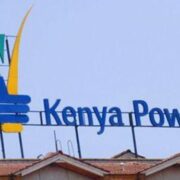
(Ecofin Agency) – Nigeria is facing economic challenges driven by inflation and the devaluation of its currency, the naira. Economic growth has struggled to keep up with a fast-growing population, which has deepened poverty across the country, reports the World Bank.
A recent World Bank report reveals that 47% of Nigeria’s population now lives below the international poverty line of $2.15 per day.

This significant rise from the 38.8% rate recorded in 2023 underscores deepening economic challenges in Nigeria, where incomes have struggled to keep pace with rising costs. While annual inflation eased slightly from 33.4% in July to 32.15% in August 2024, low wages have continued to drag down household earnings. This economic strain pushed an estimated 14 million more Nigerians into poverty this year.
Nigeria has been grappling with economic hardships for several years. Security concerns, slow growth, and persistent inflation have worsened poverty and food insecurity in Africa’s most populous nation. President Bola Tinubu’s recent economic reforms, including the removal of energy subsidies, have further increased the cost of living, leading to widespread protests. In response, the government has taken steps to soften the impact on citizens, such as raising the minimum wage and increasing public sector salaries.
In addition to these measures, the government revived its temporary cash transfer program earlier this year. This initiative aims to provide financial relief to 15 million vulnerable Nigerians and their families, helping them manage the rising living costs.
The World Bank report also looks toward 2026, projecting that the poverty rate in Nigeria could reach 52% if conditions do not improve. To counter this, the organization recommends reforms aimed at shielding the most vulnerable from inflation while promoting more productive employment opportunities to enhance livelihoods and economic stability.










Comments